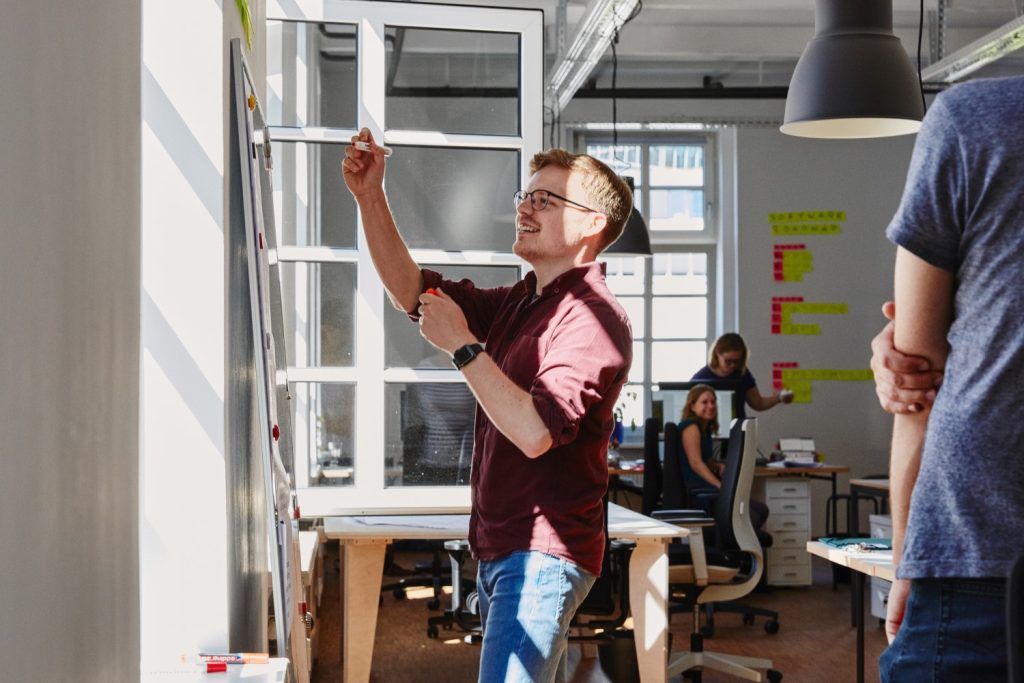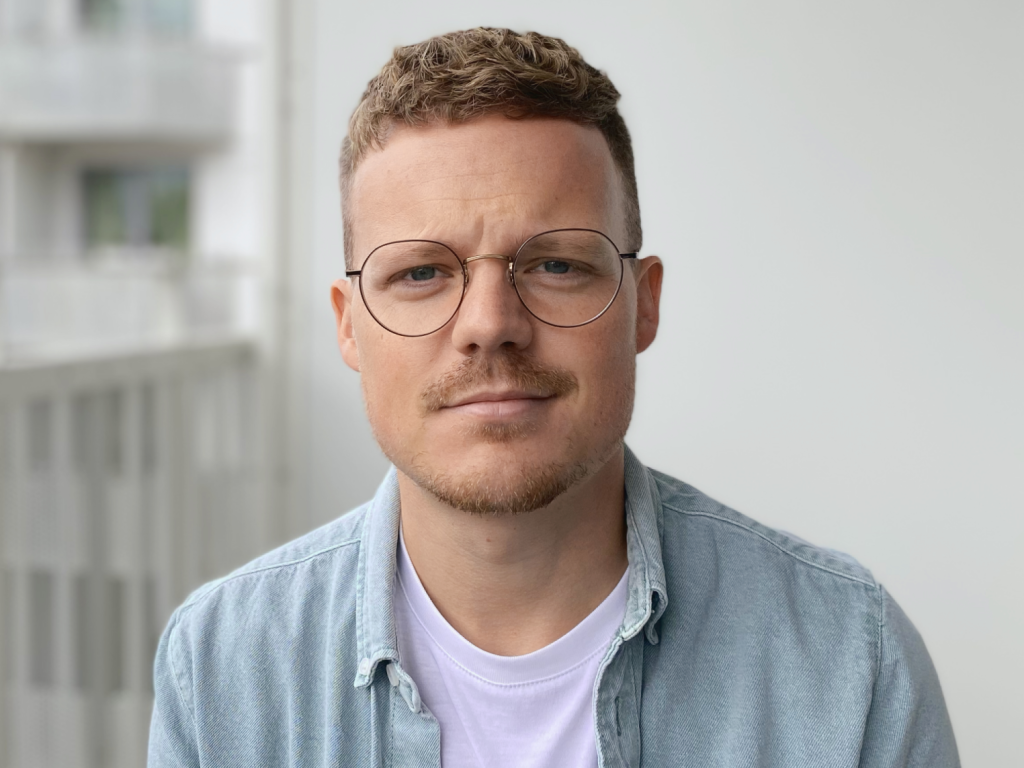Democracy Technologies: How would you explain ‘Liquid Democracy’ as a concept?
Moritz Ritter: Conceptually, liquid democracy integrates representative democracy with elements of direct democracy, and basically says that if you want, you can act as a direct decision maker. It has many elements that make it more ‘fluid’, allowing citizens to move between the role of voter, the role of representative and decision maker, or a more distant role, whenever they want. They can say, “I actually want to express and represent myself directly for this period,” or they can be completely fine with the current system of representative democracy and being represented for four years by an individual or party. Perhaps they don’t feel like they have the expertise or the time and want to delegate their say to someone else. That’s the idea. It’s up to them and they can change it. It’s a really great combination that can work within existing systems to create a hybrid of these two concepts.
DT: And what does it mean practically, for your organisation?
Moritz: We don’t think liquid democracy should abolish representative democracy. Instead we say, “look, let’s just improve on the elements that we have and address the elements that are problematic.” On the one hand, representative democracy can be very static. On the other hand, we can’t expect everyone to participate in direct democracy. So let’s address the shortcomings of both systems. Let’s focus first on certain areas where most citizens are affected and try liquid democracy there, then maybe expand into other areas. We can apply it at the local level first, then think about applying it at the national level. It’s not a coincidence that this concept is relatively new, because technology is only just now at the point where we can say, “okay, there’s actually potential here to do this, and it’s widespread.” So we want to selectively take elements from direct democracy and make democracy more representative through technology. For us, it’s not just about technology either, or the way we go about choosing representatives and making decisions. It’s about having personal agency, getting to define your own political life and preventing people from giving up on the idea of democracy by giving them greater control over their engagement.
DT: Give us a little background on the organisation.
Moritz: We were founded as part of a working group of the German Pirate Party in 2009. It was a very active group researching and discussing the concept of liquid democracy. Our association and non-profit was founded by members of that group. The idea was to take this concept and have a non-profit which acts as a think-and-do-tank to apply this concept and create practical examples all over society. Pretty quickly however, some developers joined the non-profit and decided that it would be best to create software that can be applied in practice. So that’s what our non-profit has been dedicated to ever since — trying to apply the concepts of liquid democracy in practice, but also not being dogmatic about it.

DT: Can you describe the software you’ve built?
Moritz: With the learning that we’ve acquired over the years, we realised we need to try and build something that can apply to every part of work and society. Something that focuses on the communicative and deliberative elements. And that’s what we’ve done, because democracy is not just about a system of government. Our tool, Adhocracy, used to have the voter delegation mechanisms that are, for many people, central to liquid democracy. However we removed them in 2016 because there were difficulties in execution and they weren’t being used in practice. I think we’ve realised that the discussion and deliberation part is also very crucial to the implementation of liquid democracy. It speaks to one of the shortcomings that you see in direct democracy — that people making democratic decisions are presented with binary choices between options that they’ve never discussed and that are presented poorly. Brexit is a great example. It was a very flawed decision that was being put to the people, because the deliberation beforehand was very flawed. So we’re starting at the foundations with Adhocracy, as a deliberative tool that allows people to synthesise and agree on how ideas are presented.
DT: What kinds of organisations are using it?
Moritz: Adhocracy is currently being used by the city of Berlin and by approximately 60 smaller municipalities, including Lindau, Winsen, Arnsberg and Harburg. It is also used by universities such as the Heinrich-Heine University of Düsseldorf and the University of Hildesheim. Adhocracy was used twice by commissions of the German Bundestag, most recently by the Enquete Commission on Artificial Intelligence in 2020. It was also used in 2018 and 2019 by the German Social Democratic Party (SPD) to involve members in discussing their political programme. We provide a version for youth participation that is used in countries such as Georgia and Malta, and we built a platform for participatory grant-making together with the Mercator Foundation and the NGO MitOst. There is also an adapted version of our previous software being used in schools.
DT: Do you plan to re-introduce those delegation features later on?
Moritz: Currently there’s no fixed plan for that. I think the feature is really great theoretically, but isn’t pretty in practice. We see it gets used well in contexts where people know each other, such as in school projects and classrooms. But currently we’re not sure how to best introduce that feature in a technological platform, so that people actually want to delegate their vote to someone. The main issues are around privacy and security. There’s not a lot of things that identify you apart from a certain username and maybe a profile picture, so it’s not the perfect basis on which to entrust your vote. Identity is a tough challenge for a lot of platforms. There’s of course discussions around implementing better state run identity services popping up locally in Germany and also other countries, and I think that is something that we want to integrate. But I think we should not be the ones who run that service. So I would always advocate for this particular technical challenge to be solved centrally by the state, especially when it is about making binding decisions on that sort of level, like national level policy decisions. It’s a conundrum that we haven’t found the best solution for. But I think once we have that solution, we would introduce delegation. We just want to be sure we do it properly.
DT: What’s the distinctive feature beside the liquid democracy approach, that makes Adhocracy unique?
Moritz: One important distinction that doesn’t just apply to us is, but is definitely important, is that our software is open source. It needs to be open source. I think every credible solution in the space needs to be open source. There’s a lot of big tech companies developing their own solutions which are completely closed and that’s something we are definitely very critical about. Every government and every administration should be very, very careful about using closed source software for trying to improve our democracy as there’s a transparency issue. The other thing would be ease of use and set up. We provide software as a service and it’s really easy for any organisation to get started with us and create participation projects. We had issues earlier on. We realised it was far too difficult to set up and had to redo a lot. But now, you don’t need anyone who is technically savvy, installing the software and figuring out how it suits you. It just works out of the box. You can click a few things, write us an email, and then you can start your projects. We’ve seen a lot of adoption in municipalities in Germany now and also across Europe for this reason. It works really great for small organisations and municipalities who don’t have the means to have their own system administrator. From what I know of other software solutions, that’s pretty unique.
